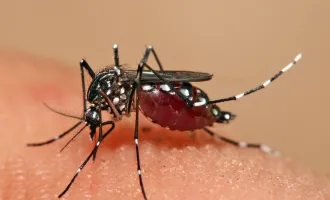
Professor Emeritus Loses 4th Paper After UCSF-VA Investigation
A Professor Emeritus at UCSF has lost a fourth paper after an investigation by UCSF and the San Francisco Veterans Affairs Medical Center uncovered faked data in several of his articles.
Rajvir Dahiya, Director of the UCSF/VAMC Urology Research Center from 1991 until his retirement in 2020, also had three other retractions from as early as 2017.
The latest retraction was reported in Retraction Watch, a blog based in New York City founded by health journalists Ivan Oransky and Adam Marcus. The retraction is for “Knockdown of astrocyte-elevated gene-1 inhibits prostate cancer progression through upregulation of FOXO3a activity,” published in Oncogene in 2007. It has been cited 191 times, according to Clarivate’s Web of Science.
A retraction notice posted on October 19, 2022, stated:
“The Editors-in-Chief have retracted the article following an investigation by the Investigation Committee on Scientific Misconduct of the Veterans Affair Medical Center, San Francisco, and the University of California San Francisco. The committee concluded that Figures 2b, 4b, 4c, 5a and 5c are the results of fabrication or falsification of data. The Committee could not determine who was responsible for the fabrication or falsification.”
Dahiya disagreed with the retraction while one of the paper’s co-authors, UCSF urology professor Yuichiro Tanaka, agreed. The nine remaining co-authors’ reactions to the investigations’ findings were not available. Attempts by Retraction Watch to reach Dahiya and Yuichiro Tanaka were unsuccessful.
The UCSF-VA investigation was conducted after a few of Dahiya’s papers, including the recently retracted one, received comments on PubPeer pointing out similarities in images dating back to 2013.
Retraction Watch filed a public records request to obtain letters sent by the UCSF and VA in 2017 to editors of the International Journal of Cancer and the American Association of Cancer Research, which publishes Clinical Cancer Research and Cancer Research, stating that the investigation committee found “fabrication or falsification of data that constitutes Research Misconduct” in articles published by each journal. Those three papers have been retracted.
The letters detailed the committee’s findings for each paper, stating that the committee “could not determine who was responsible” for the fake data.
With regards to the 2018 correction to a PNAS paper, a UCSF-VA investigation committee “concluded that the manipulation of the images in Fig. 2D could only have occurred intentionally, representing instances of scientific misconduct,” but the committee could not determine who was responsible.
In addition, a paper of his in the Proceedings of the National Academy of Sciences was corrected in 2018, and one in Clinical Cancer Research received an expression of concern last year. The latter was for a paper titled, “Epigenetic Modifications of RASSF1A Gene through Chromatin Remodeling in Prostate Cancer.” The notice also referenced a “review” by UCSF and the VA, which it said “determined that blank panels were used to represent negative results” in two figures.
In recent years, the global scientific research community has begun to recognize and emphasize the importance of reproducibility and accountability in scientific data. As such, many have laid their eyes on paper retractions.
An alarming study published in 2013 states that the number of articles retracted by journals had increased 10-fold during the previous 10 years. And last July, Science magazine reported several expressions of concern lodged against many Aβ*56 papers tied to Sylvain Lesné’s work in Alzheimer’s disease.



